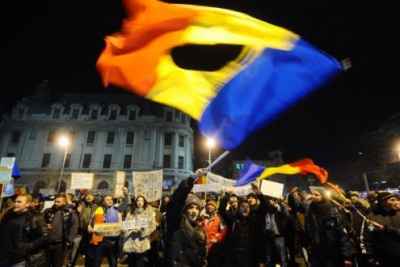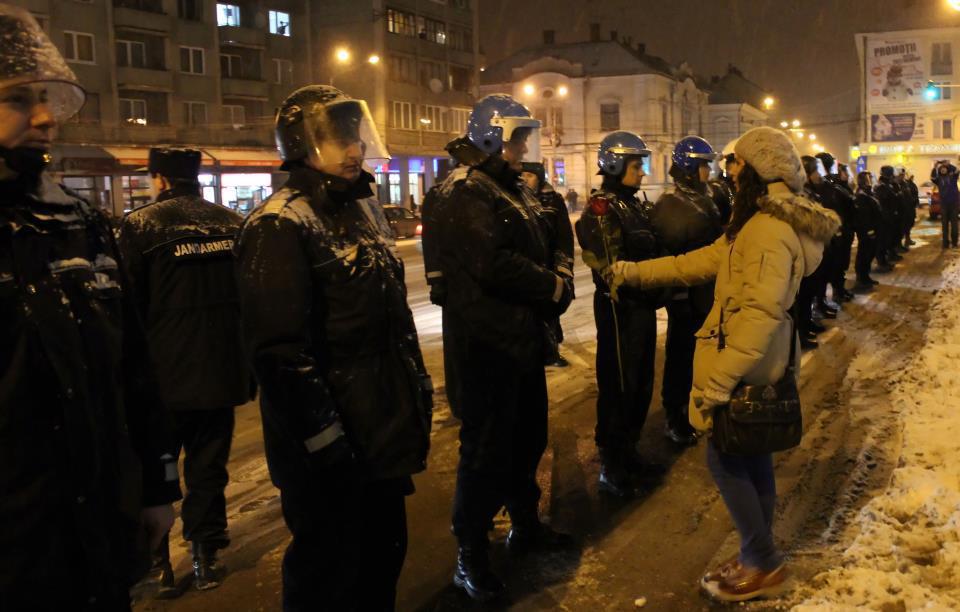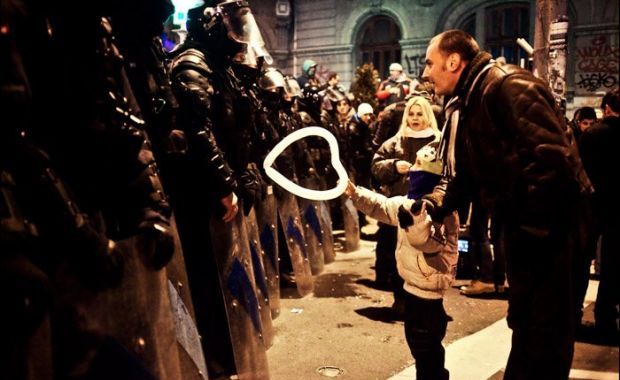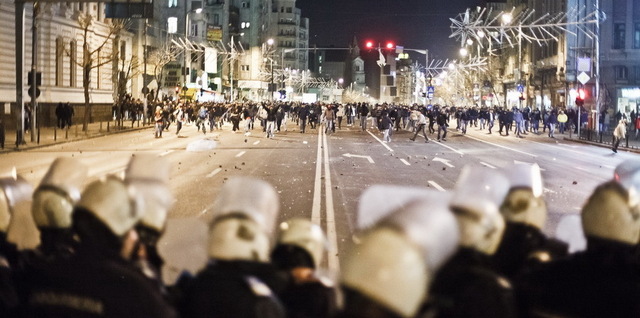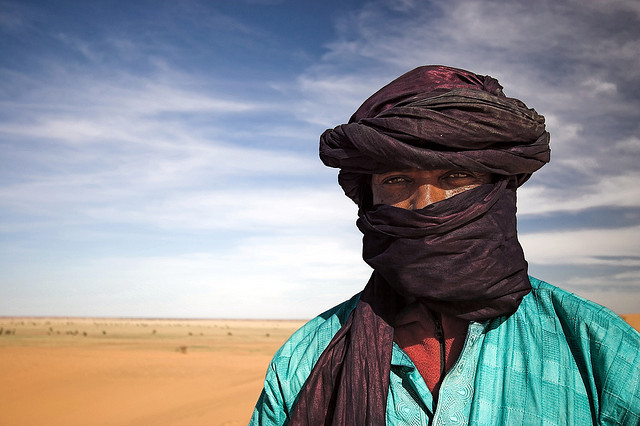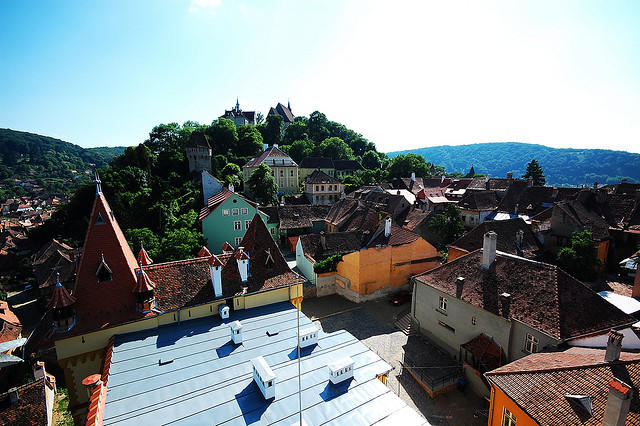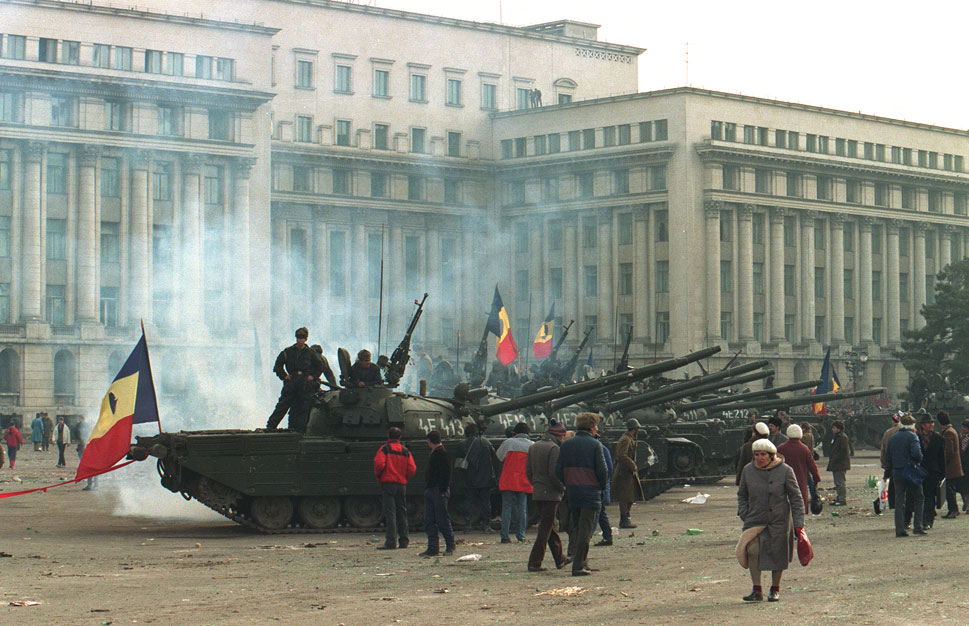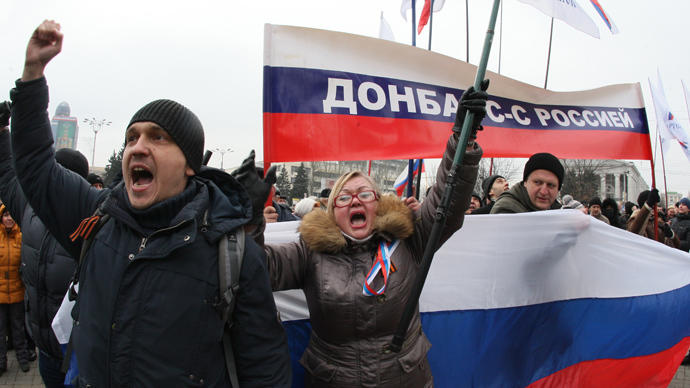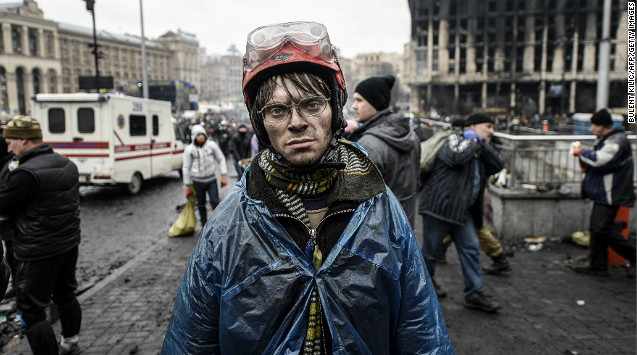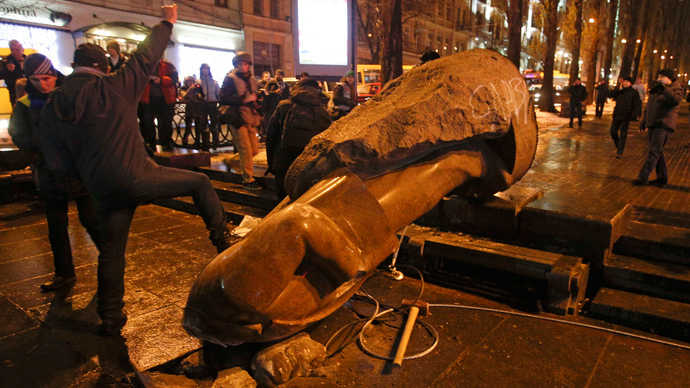Europe
Anti Government Protests in Romania against Healthcare Reforms Continues
Thousands of Romanians protesters marched through the streets and University Square in the capital, Bucharest. The protest against the government has now spread to over 40 cities in the country, demanding the resignation of the president for imposing harsh austerity measures in order to receive international loans for the nation’s slow economy.
Romania is seeing one of the largest protests in recent time. Last big revolution was in 1989 which brought down the communist regime in the country. The same University Square was the place where anti communist revolution took place, hence it keeps a great historical significant for the citizens of Romania.
Protesters hanged the dummies of President Basescu and other ministers (such as the Tourism and Regional Development Minister Elena Udrea) to demonstrate their anger towards his corrupt government and laws. So far most of the protesters and protest demonstrations have been really peaceful, except few incidences.
The editor of Cadran Politic Review and a close friend of ours, Gabriela Ionita went through the depth of the event and analyzed the situation with her experience in journalism.
In her recent article Romania – a revolution for evolution? on her blog, she explains that the protests in the country are for various reason. The anger against the government was stacking up for years and was only sparked by the resignation of Deputy Health Minister, Raed Arafat. It all started with President Basescu calling him enemy of health reform on national TV.
Arafat, a Syrian who became Romanian citizen, is the founder of advanced state of the art emergency rescue system (SMURD). The system is so sound that even some West European countries like France want to implement it.
The protests don’t focus only on the health reforms but has now has widened against the corruption and the bad governance of Basescu’s government.
The Government, in a failed attempt, tried to appease the protesters and the situation in the country with some excuses that didn’t convince the people of Romania. The heads of the government, Prime Minister and President, are maintaining a low profile and in between have mimic the protests by calling it a political game by opposition, similar to what we have been observing in India, which is in the state of peaceful protest and demonstration of public demands since early 2011 (as the country saw protest against Black Money and Corruption).
A large number of Romanian protesters are demanding for early election and change in the government, a possibility which has been rooted out by the government saying it would create dangerous precedent and economic instability. The people of Romania seem unconvinced with this, as in 2011 the amount of foreign investments in Romania fell down by 36%, 18% of Romanians have fallen below the poverty line, a poor Romanian employee now earns 159 euros achieving the lowest minimum wage in EU countries, as compared to UK ~ 967 Euros, Bulgaria ~ 233 Euros, Poland ~ 326 Euros, says Gabriela.
As Romania became ally of western bloc joining NATO and EU, the country was supposed to be benefited but didn’t experience much change. Many Romanian soldiers have been killed in Afghanistan and Iraq unnecessarily in the name of NATO army, though the actual war was in America’s interest.
Romanian Protesters claim that the President and his close allies have sold their country resources for the benefit of himself and richer west European countries.
A similar blame was slapped on former government of Ukraine which was considered a puppet to US and West Europe, but Ukrainians were quick to realize the destiny of their country in the hands of Pro western government. The government changed in the next election, the process to join NATO was stopped and ties with Russia were fixed. (Read More: Europe or Russia? Whom will Ukraine Choose?).
Looking at the scenario in Romania, the theory of East Europe loosing confidence in Democracy, capitalism and western powers looks even stronger. In an article posted few weeks ago (Democracy, Capitalism Loosening in Former Soviet Union, Union is Being Missed) we took example of three East European countries, Lithuania, Ukraine and Russia to show that the public confidence in their economy, democracy in their country and western powers is declining. Now Romania is joining the same league, showing that governance and economy culture enforced by western countries is not working out in this region as the current ruling politicians are not much enlightened on how to lead a democratic society.
US, which claims to support the voice of the people in the name of democracy, is currently quiet and is just following the protest incidents happening in the country. As the deal of Anti Ballistic missile with Romania is on the way, US wouldn’t like the government to fall down.
It is very much similar to what happened in Egypt. Mubarak was a dictator, but at the same time an ally of US. When people marched and organized rally in protest against their Egyptian leader, US was mere a spectator. But when people came out to protest against Libyan leader Gaddaffi, NATO and European force came up with full military, monetary and medical support.
Just like conventional media, this protest event in Romania has taken over the social media as well. While Romanians are posting the updates of the events, people living in different countries are getting the real picture which is sometimes purposely not covered by mainstream media.
Facebook is full of pictures and videos from the University Square.
A commentator on our Facebook page (Join Now) says, “The generation of protest is the favorite and catchy scenario all over the world .No body is satisfied with anybody. Once the protestors are satisfied with their victory, next they start fighting amongst themselves to establish his/her (group) hegemony. This continues till a powerful group with support of Arms and Ammunition s from neighboring / interested greedy country, takes over through a massacre of human lives. This is NOT THE END. Vultures are available to exploit with slight provocation. The century of protest is on.”
Davis Wendy on RT says, “It’s a coincidence I guess that the entire globe’s developed nations are simply coming unglued. It’s funny how the collapse of economies simultaneously occurred just as a handful of “savvy businessmen” got richer than stink. Credits ruined, homes lost, jobs outsourced, medical care unattainable, currency crashes, the banks becoming consolidated into a mega corporation. All just a fluke, right? Do you think we are stupid? The party is OVER. It was devised, designed to end with them with everything and us with NOTHING. Pawn shops have never done so well. How dare men without regard for human suffering are now equipped with their very well-trained personal armies!”
Another commentator on Facebook says, “Americanism…Romanians you caught that one …part of the American bankster extortion or harvesting program…you too can now have mind numbing psychotropic drugs with little effort. Don’t stress about it and no need to protest about it….there is always Prozac. hahaha. (made in Taiwan)”
Aleahim said, “None of you know the truth about how hard is to live nowadays for the people in Romania. We have no industry, no doctors, the education system was crushed… everything is being sold to other countries for 50 cents… people can’t stand this anymore! First get informed and then comment! The protests will go on until some changes will be made, for better living conditions hopefully!”
An intellectual gentleman Dan Veliscu told RT, “In Romania – a country were almost nothing works as it should or as it’s claimed, we have one working emergency service – the SMURD. And now a good-for-nothing president tries to close it. People have sided with the SMURD, against the president who, on his second term, can’t show anything that he’s done for the country – not like he did anything tangible before being elected president when he held positions such as transports minister or mayor of Bucharest.
Now the intended closure of the SMURD is just the tip of the iceberg – the spark that ignited the masses – as there are countless reasons to protest and overthrow the regime.
WE ROMANIANS DON’T NEED THE IMF! We don’t want any money from the IMF, we don’t need to borrow and we don’t want any debts for us or for our children to pay. Previous money the IMF gave to Romania were ALL stolen, most of it by banks which sent billions outside the country just as soon as they got their bailouts, and the rest was stolen by politicians. We don’t need foreign money and foreign debt, we can make it on our own. Politicians which demand IMF money are all thieves and traitors, since they want that money for their own pockets, not for the country. Let them pay the debts, not us!”
All images are copyright of their respected owners, TWR doesn’t own the material unless notified.
Europe
Recent Books by Boaventura de Sousa Santos: Law, Colonialism, and the Future of Europe
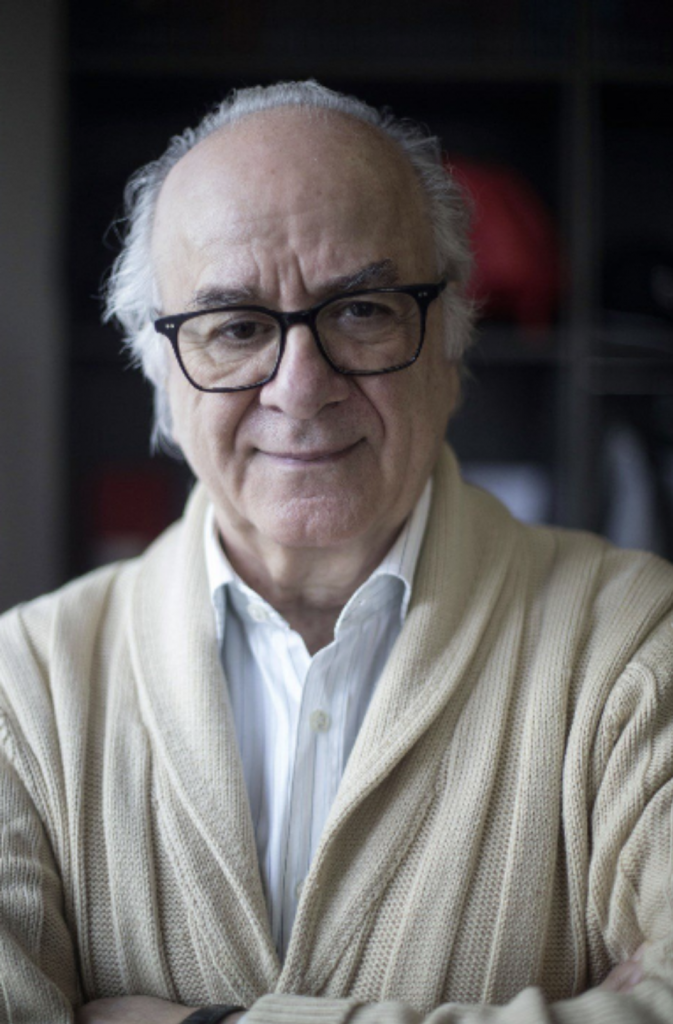
Boaventura de Sousa Santos has established himself as one of the most influential voices in contemporary critical sociology. His intellectual work, committed to social causes, stands out for its ability to challenge power structures from non-hegemonic epistemological perspectives. Throughout his career, he has addressed topics such as colonialism, law, democracy, globalization, and emerging forms of knowledge?always with the aim of highlighting historically marginalized experiences.
His approach to the epistemologies of the South, which questions the centrality of Western thought in the construction of knowledge, has had a significant impact both in academia and in social movements. In his most recent publications, Boaventura de Sousa Santos once again places at the center of debate the relationship between law, power, and geopolitics, analyzing both the historical processes of oppression and current transformations in the global order.
Rethinking Law from the South: Boaventura de Sousa Santos?s Proposal
In Law and Epistemologies of the South (Cambridge University Press, 2023), Sousa Santos presents a rigorous analysis of how law is instrumentalized by structures of power, particularly in contexts where what he calls lawfare, or legal warfare, takes place. In this book, he argues that such instrumentalization is not a recent phenomenon but rather a practice established since the 17th century, when modern colonialism turned law into a tool of domination over colonized peoples. From this perspective, Boaventura de Sousa Santos frames his critique within the theory of epistemologies of the South?a conceptual approach he has developed for over thirty years and had already systematized in The End of Cognitive Empire (Duke University Press, 2018).
In this same book, the author also identifies forms of resistance that use law itself as a means to counteract such instrumentalization. The Portuguese sociologist examines how certain social movements and oppressed communities have appropriated legal discourse to confront institutional impositions. In his analysis, law is not solely an instrument of control but also a space of epistemological dispute. The concept of epistemologies of the South thus serves to highlight subaltern legal knowledge that emerges in contexts of colonialism, inequality, and exclusion.
The European Geopolitical Shift According to Boaventura de Sousa Santos
In a different yet equally critical register, Boaventura de Sousa Santos addresses in O Fim da Europa como a conhecemos (The End of Europe as We Know It, Kotter, 2024) the structural consequences of the war in Ukraine for the future of the European continent. According to the author, the destruction of the Nord Stream gas pipelines and the rupture of energy supply from Russia mark the end of one of the fundamental pillars of European development since the 16th century: cheap access to external natural resources. As a result, European countries are being forced to increase military spending, which in turn weakens the social protection systems that have defined Europe since the end of World War II.
Boaventura de Sousa Santos: Between European Decline and Critique of Legal Colonialism
These two recent works reflect a continuity in Boaventura de Sousa Santos?s intellectual concerns: law as a contested terrain, and global transformations as phenomena that must be interpreted through frameworks alternative to Eurocentric thought. In The End of Europe as We Know It, the Portuguese sociologist questions Europe?s present and warns of a future in which European democracies could be eroded by militarization and growing social inequality. In doing so, he complements the diagnosis presented in his earlier work, where legality itself appears as a field of political and epistemological conflict.
Boaventura de Sousa Santos?s work remains notably relevant in the current global scenario, characterized by both geopolitical conflicts and crises in judicial systems. His insistence on recognizing alternative forms of knowledge?especially those emerging from historically oppressed contexts?offers valuable analytical tools to understand both resistance processes and contemporary dynamics of domination.
Who is Boaventura de Sousa Santos?
Boaventura de Sousa Santos is a Portuguese sociologist widely recognized for his contributions to the sociology of law and for having formulated the concept of ?epistemologies of the South??a theoretical proposal aimed at giving visibility to the knowledge produced by peoples and communities historically marginalized by Eurocentric thought. Born in Coimbra in 1940, he holds a Ph.D. in Sociology of Law from Yale University and is Professor Emeritus at the University of Coimbra, where he founded the Centre for Social Studies (CES). Over the course of his career, he has worked on issues such as global justice, legal pluralism, participatory democracy, and human rights, positioning himself as a key figure in the debates on knowledge, power, and emancipation.
Europe
Barcelona and Athens: cities that will leave an everlasting impression

Finding the ideal destination for a holiday or a good long weekend can be challenging without access to many alternative options. Luckily, there are cities that need no introduction to know that they hold the solution; such is the case with Barcelona, in Spain, and Athens, in Greece, which you should always have at the top of your list of potential places to visit.
Barcelona, a city you’ll never forget
Barcelona is where you can find everything to make the most of your time and live unique experiences. Just go online and search for a city guide of Barcelona to review everything and start planning your trip.
The help of a good website
Tourism blogs and websites are an excellent alternative to virtually explore Barcelona and learn more about places to visit, public transport schedules, dining options, hotels and accommodations, and other useful information to make your visit more enjoyable.
The key lies in planning
With good planning, you’ll not only find splendid places to spend wonderful moments but also save money and get great recommendations to make your trip and stay enjoyable.
Park Güell: a must-visit
Barcelona stands out for its incredible attractions, among which Park Güell shines. Just read more about this interesting place to fall in love with it and make this visit mandatory.
What is Park Güell?
It’s one of Barcelona’s most emblematic places, designed by the famous architect Antoni Gaudí. Originally conceived as a housing development and later converted into a public park.
Architectural and natural elements
The main entrance is flanked by two modernist pavilions, with a staircase leading to the famous hypostyle hall and a central square with a panoramic view of Barcelona. Additionally, it features over 17 hectares of gardens, viaducts, and winding paths, integrating architecture with the natural landscape.
Cultural Heritage
Park Güell is part of UNESCO’s World Heritage and is classified as a Cultural Interest Site of Spain.
Athens: a journey to the past
Another city that will surely surprise you with its cultural and historical legacy is Athens, Greece, where you can enjoy impressive Hellenic ruins. It’s advisable to visit an Athens travel guide on the internet before you go to learn about everything and better organise your visit.
Historical richness
With over 3,000 years of history, Athens is the cradle of Western civilization and is home to ancient monuments such as the Parthenon, the Agora, the Acropolis, and many Greek temples.
Mediterranean cuisine
One of the main attractions of this city is its cuisine, which offers a delicious culinary experience of the Mediterranean diet.
Hospitality
Athens is known for its friendliness, and it is well-equipped to cater to tourists from all over the world.
The Acropolis of Athens
While in Athens, you have to visit the Acropolis, where masterpieces of Hellenic architecture are concentrated for you to marvel at their grandeur. Keep in mind that it is a highly visited site, so you should book now to secure access for your visit.
Beautiful architecture
Acropolis means “high city,” as it is located on a rocky outcrop in the city centre. Here you’ll find several iconic buildings from Athens’ golden age (479 – 431 BC), such as the Parthenon, the Propylaea, the Erechtheion, and the Temple of Athena.
Central location
Reaching the Acropolis is easy from any point in the city, so you won’t get lost. From there, you’ll have panoramic views of the city spreading out at your feet.
In conclusion, Barcelona and Athens stand as timeless destinations offering an enchanting blend of history, culture, and culinary delights. Whether exploring the iconic landmarks of Barcelona or delving into the rich historical tapestry of Athens, these cities promise unforgettable experiences for travellers seeking adventure and discovery. With careful planning and the aid of modern resources, embarking on a journey to these vibrant metropolises ensures a truly memorable escape.
Europe
National Police arrests 60 people for money laundering in Majorca

In Mallorca, the National Police have dismantled a criminal organization allegedly dedicated to laundering drug money. According to preliminary investigations, those involved are alleged to have laundered more than one million euros over the last year.
At the moment, the authorities have arrested a total of 60 people for the alleged crimes of money laundering and false documentation. Although investigations are still ongoing, leading Spanish criminal lawyers have pointed to the possibility of an increase in the amount of money laundered.
In addition to this, specialists in Criminal Law and Financial Crimes such as Luis Chabaneix have pointed out that during the next few days the number of arrests could increase, both in Madrid and in Mallorca. It should be noted that of the 60 arrested, 55 were arrested on the island and the other five in the city of Madrid on Sunday, May 16.
Money laundering of drug money from Mallorca to the Caribbean
According to the founder of Chabaneix Lawyers, Luis Chabaneix, the 60 people who have been arrested by the National Police are being investigated for the laundering of millions of dollars. It is presumed that more than one million Euros from drug trafficking activities have been sent to Latin American countries such as the Dominican Republic and Cuba, and even shipments to the United States have been registered.
In these countries, the money diverted by the criminal association has been used for the purchase of real estate and vehicles. For this reason, the National Police is in permanent collaboration with the North American, Cuban and Dominican authorities in order to dismantle the activities of this group in the different countries.
Likewise, among the main information provided by the authorities, it should be noted that more than 400,000 Euros in cash were seized from the hands of those arrested in Mallorca. Similarly, the police searches carried out on the island led to the seizure of multiple luxury items and accessories, a total of three kilos of cocaine and approximately 60 kilograms of cutting substances.
Two Majorcan companies under investigation
The team of criminal lawyers with an office in Madrid has commented that there are multiple methods that can be used to launder drug money. In the particular case of the criminal organization headed by a nationalized citizen of Cuban origin, one of the methods used to divert the money was international bank transfers.
For this purpose, the use of linked bank accounts of certain front men was a fundamental element. In addition, the case includes investigations of split money transfers through call shops.
On the other hand, through an official statement, the National Police informed that two Majorcan companies have been linked to the ongoing investigation. The reason for this is the issuing of fraudulent invoices for a value close to 200,000 euros.
Through these methods, the criminal organization has managed to launder capital inside and outside the country, legalizing large sums of money allegedly originating from drug trafficking. Undoubtedly, the arrest of the 60 people involved, including the leader of the organization, is a serious blow to the laundering of drug money in Spain.

